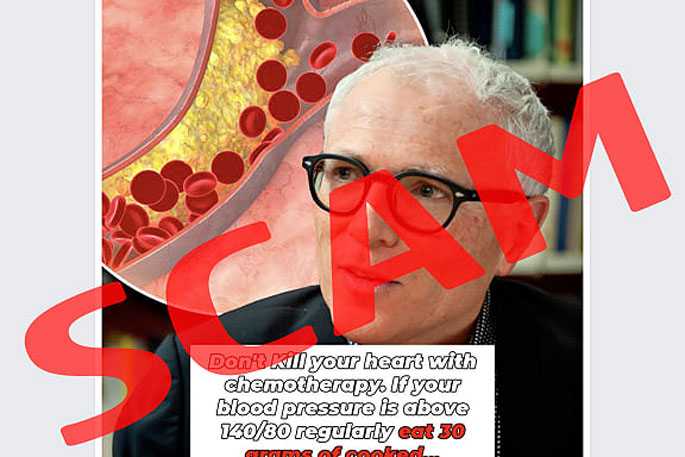Epidemiologist Michael Baker is concerned about his image being fraudulently used to sell a product called 'Blood Balance'.
Professor Baker's first became aware of the use of his image - on Facebook and Instagram - about a week ago.
"I started getting emails from people sending what was obviously scam content from Facebook and Instagram of me promoting some product to send people's blood or somehow protect them from diseases of the circulation system."
Baker says he didn't know what the product is, nor endorses it, and he encourages people to ignore it and report it as a scam.
But he says it's the messages from people telling him they have spent a significant amount of money on the product and thanking him for the endorsement that really worries him.
"That's really bothered me because this is actually hurting people."
He's also shocked to see deep fakes of his image talking about the product and encouraging people to buy it, he says.
Companies like Meta, which make huge profits from advertising on sites such as Facebook and Instagram, need to better manage their product, he says.
"With profit should also go responsibility and I would like to see Meta and other companies take responsibility for the harm they're doing with the way social media is operating."
He says currently there is no way to complain to the social media giants about images being used fraudulently except by reporting individual ads.
Baker says he has been a commentator for a long time, but has seen an onslaught of misinformation, negative feedback in the social media landscape since the Covid-19 pandemic.
"People are threatening to do everything you could imagine to you - Nuremberg 2, a 'hanging would be too good for you' - and it goes on and on. While it's unpleasant to get some of these comments, they're not actually physically hurting you.
"The problem is that over time, when many people read these comments about you and you become more recognisable, it dehumanises you. The risk is then people feel that it's quite acceptable, or even desirable to physically attack you."
It has already been seen with politicians and journalists, Baker says, and he fears it could happen to scientists in the future.
"So I do think companies operating social media and profiting from it need to take these responsibilities really seriously and act on them."



0 comments
Leave a Comment
You must be logged in to make a comment.